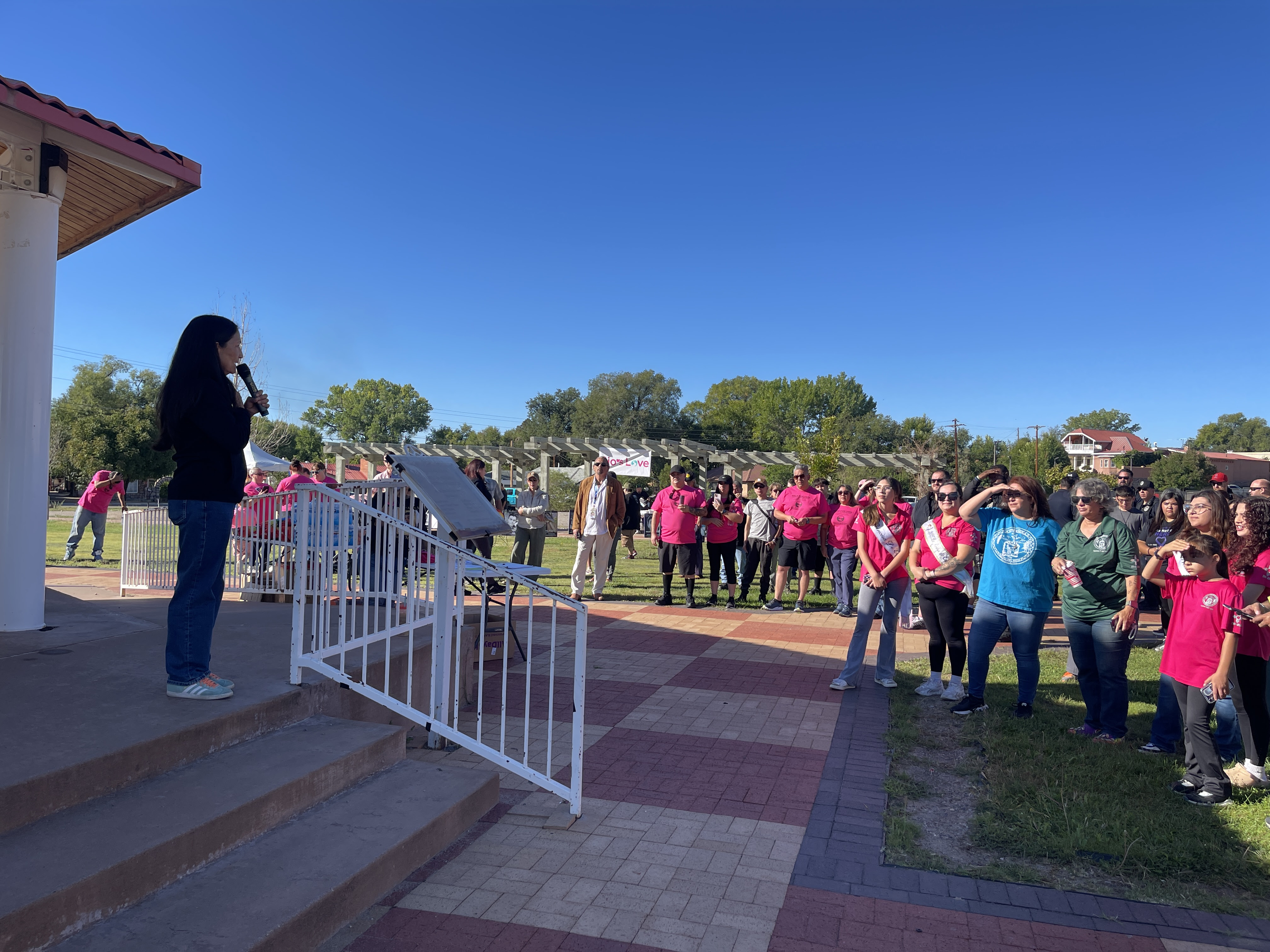
- Details
- By Levi Rickert
Native Vote. At Saturday’s Walk For Our Lives fentanyl awareness event in Española, Deb Haaland (Laguna Pueblo), a candidate for governor of New Mexico, joined families affected by the fentanyl epidemic and pledged to take action on the crisis. She promised to direct resources toward addiction recovery programs, family support services, and to equip law enforcement with the tools needed to combat the spread of illegal drugs across the state. The event was led by Española native Alicia Pauline Vigil-Ryan, whose son died from fentanyl poisoning in 2022.
“The rise of fentanyl in our communities is heartbreaking. It ruins lives and families. Thank you to Alicia for your strength in leading us all today. As governor, I’ll invest in addiction services, making sure families have support, and in law enforcement so they have the tools to keep our community safe and provide the help the community needs,” Haaland said.
A recent report from the New Mexico Department of Health reveals a significant spike in overdose deaths in Rio Arriba, Santa Fe, and Taos Counties, with fentanyl responsible for the majority of those fatalities.
Haaland has spoken openly about her own past struggles with addiction, giving her a personal understanding of how deeply substance abuse impacts individuals and families—and the difficulty of accessing help. While serving in Congress, she secured $9.4 million in funding for New Mexico communities to address the opioid epidemic and expand addiction services. As Secretary of the Interior, she partnered with Indian Health Services (IHS) to bolster mental health support in high schools serving Native youth, aiming to prevent early pathways to addiction.
More Stories Like This
Native News Weekly (August 25, 2024): D.C. BriefsMonday Morning (March 2, 2026): Articles You May Have Missed This Past Weekend
Native News Weekly (March 1, 2026): D.C. Briefs
Scope Narrowed, Report Withheld: Questions Mount Over Michigan Boarding School Study
Zuni Youth Enrichment Project Announces Family Engagement Night and Spring Break Youth Programming
Help us defend tribal sovereignty.
At Native News Online, our mission is rooted in telling the stories that strengthen sovereignty and uplift Indigenous voices — not just at year’s end, but every single day.
Because of your generosity last year, we were able to keep our reporters on the ground in tribal communities, at national gatherings and in the halls of Congress — covering the issues that matter most to Indian Country: sovereignty, culture, education, health and economic opportunity.
That support sustained us through a tough year in 2025. Now, as we look to the year ahead, we need your help right now to ensure warrior journalism remains strong — reporting that defends tribal sovereignty, amplifies Native truth, and holds power accountable.
 The stakes couldn't be higher. Your support keeps Native voices heard, Native stories told and Native sovereignty defended.
The stakes couldn't be higher. Your support keeps Native voices heard, Native stories told and Native sovereignty defended.
Stand with Warrior Journalism today.
Levi Rickert (Potawatomi), Editor & Publisher

